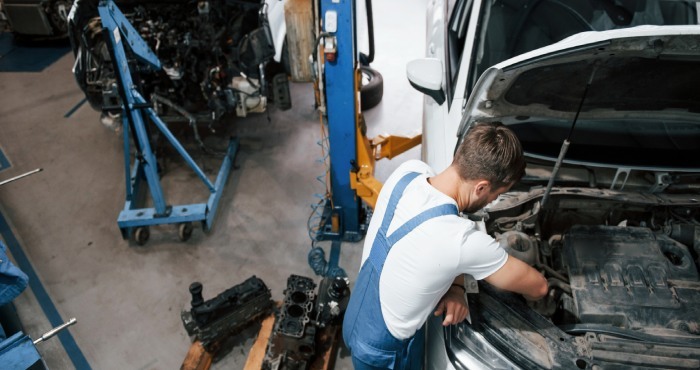When individuals purchase either a new or pre-owned car, they anticipate it will function properly; however, numerous buyers find themselves dealing with ongoing issues, commonly referred to as “lemons.” Attorneys specializing in California’s Lemon Law assist these consumers by obtaining refunds, replacements, or compensation, taking advantage of some of the most robust lemon law regulations in the country.
Variations in lemon law protections across states stem from factors like legislative priorities, consumer advocacy, and the influence of the auto industry. A skilled California Lemon Law lawyer uses the state’s strong consumer protections to fight for fair outcomes and set a national example for reform.
The Basics of Lemon Law
Lemon laws are legal provisions designed to assist consumers who buy or lease vehicles that have major defects affecting safety, usability, or worth. All 50 states and Washington D.C. have enacted some form of lemon law, though the specifics and effectiveness can vary widely.
Generally, these laws pertain to new vehicles, but some states also offer protections for used or leased vehicles. Key requirements often include:
- A set number of attempts to fix the vehicle before it can be classified as a lemon.
- A specified time frame or mileage limit in which the defect must arise.
- An obligation for the manufacturer to either replace or buy back the vehicle if it fulfills the criteria outlined in the law.
Although there are commonalities among lemon laws, the actual results for consumers can differ significantly depending on the location.
Factor 1: Strength of Consumer Advocacy
A significant factor contributing to variations in lemon law protections across states is the level of consumer advocacy present. States that have strong organizations dedicated to consumer rights, engaged legal aid services, and proactive public interest advocates are more likely to enact stringent laws.
Take California, for instance; it is frequently recognized for having one of the most comprehensive lemon laws in the nation. The Song-Beverly Consumer Warranty Act, which applies to both new and used vehicles sold with warranties, is a product of effective consumer lobbying and vigorous enforcement by the California Department of Consumer Affairs along with the Attorney General’s office.
Factor 2: Influence of the Automotive Industry
Industry Influence on Lemon Law Legislation in Auto-Heavy States
In states with a major automotive presence—such as Michigan, the heart of the U.S. auto industry—lemon law protections tend to be more limited. Although Michigan does provide some consumer safeguards, its laws are generally narrower compared to those in more consumer-centric states. This is largely due to the significant lobbying power of automakers, who frequently push back against broader protections.
Tactics That Weaken Consumer Protections
Automakers argue that overly generous lemon laws can be abused, ultimately driving up costs. As a result, their influence often leads to legislation that:
- Requires a higher number of repair attempts before a vehicle is deemed a lemon
- Excludes coverage for used or leased vehicles
- Restricts the types of defects that are eligible
- Imposes caps on recoverable damages or attorney fees
These compromises, often driven by political and economic interests, tend to prioritize industry concerns over consumer rights.
Factor 3: Legislative History and Legal Culture
Legal frameworks and legislative philosophies significantly influence the establishment of lemon law protections. States known for their progressive legislation, like New York, Massachusetts, and California, tend to have comprehensive and effectively enforced lemon laws that emphasize consumer rights.
Conversely, states that lean toward libertarian or conservative ideologies may be resistant to government oversight, including regulations perceived as hindering free-market operations. Consequently, consumers in these regions often encounter lemon law protections that are either minimal or challenging to enforce.
For instance:
- South Dakota’s lemon law is limited to new vehicles weighing under 12,000 pounds and excludes used cars altogether.
- Illinois does not cover motorcycles or vehicles purchased for commercial use.
- Arkansas stipulates that defects must arise within a period of 24 months or 24,000 miles, which is one of the shortest timeframes available nationwide.
These restrictions illustrate a legislative attitude that places less emphasis on consumer protection.
Factor 4: Scope of Coverage (New vs. Used Vehicles)
Coverage for Pre-Owned Vehicles: A Crucial Distinction in Lemon Law Safeguards
A significant variation in lemon law protections among different states is the inclusion of pre-owned vehicles. Only a handful of states, including California, New York, New Jersey, and Massachusetts, offer lemon law protections for used cars that come with warranties. This distinction is vital, as used cars represent a substantial segment of the automotive market, especially for individuals with lower to moderate incomes. Regrettably, numerous states do not provide any coverage for used vehicles, leaving consumers with limited options when they encounter major defects.
Criteria for Pre-Owned Vehicle Protections
In states that do offer lemon law coverage for used cars, certain stipulations are generally in place:
- The car must be sold with a warranty provided by the dealer, even if it’s restricted.
- The defect must manifest within a designated timeframe or mileage threshold.
- The purchaser must allow the dealer or manufacturer a reasonable chance to resolve the problem.
The decision of whether a state includes pre-owned vehicles in its lemon law protections significantly influences the extent to which average consumers are protected against purchasing faulty vehicles.
Factor 5: Dispute Resolution Processes
The way a state addresses lemon law conflicts significantly impacts the accessibility and fairness of the process for consumers. Some states require manufacturers to fund arbitration programs, while others permit direct legal action or offer state-sponsored mediation services.
For instance:
- In California, consumers can file lawsuits directly and recover their legal expenses if they prevail.
- Texas features a Lemon Law Complaint Program managed by the state, which includes an administrative hearing procedure.
- Florida mandates that consumers participate in a state-certified arbitration program prior to initiating a lawsuit.
States that offer straightforward, low-cost dispute resolution options greatly enhance consumers’ ability to seek justice. Conversely, those that impose bureaucratic hurdles or financial obstacles can render lemon laws nearly unreachable.
Factor 6: Remedies and Recovery Limits
The options for remedies under lemon laws differ greatly from state to state. In some jurisdictions, consumers can receive a complete refund or a replacement vehicle, along with compensation for additional costs such as towing, rental cars, or lost income. In contrast, other states may impose limits on the amount of compensation or exclude specific expenses altogether.
California is particularly notable for its provision of full restitution, which includes coverage for taxes, registration fees, and legal costs. On the other hand, some states may:
- Only offer partial refunds.
- Refuse to reimburse for expenses unrelated to the vehicle.
- Set caps on the total damages that can be awarded.
These differences create a situation where consumers in certain states have a much better chance of receiving adequate compensation after acquiring a defective vehicle compared to those in other regions.
Factor 7: Enforcement Mechanisms
Even the most well-crafted legislation is rendered useless without effective enforcement. The degree to which states enforce lemon law regulations varies widely.
In some states, proactive attorney generals or consumer protection agencies help enforce lemon laws by investigating complaints and holding manufacturers accountable. In states with weaker enforcement, consumers often face an uphill battle—making it essential to have a skilled lemon law attorney by your side to navigate the legal process effectively.
For example:
- New Jersey features a Lemon Law Unit within its Division of Consumer Affairs that assists in resolving disputes and offers educational materials.
- In Nevada, consumers frequently need to engage private attorneys to file claims, which can serve as a considerable barrier.
Effective public enforcement of lemon law regulations helps ensure a fair environment and increases the chances that consumers will succeed in their lemon law claim.
Moving Toward National Standards?
Limitations of Existing Federal Safeguards
The Magnuson-Moss Warranty Act provides some level of protection on a national scale by permitting consumers to take legal action for warranty violations. Nevertheless, it does not supersede state lemon laws and lacks specific timelines or guaranteed solutions for vehicles that are defective.
The Case for a National Lemon Law
Implementing a federal lemon law would establish uniform criteria across all states, covering eligibility for both new and used vehicles. It would also clarify the number of repair attempts necessary for a vehicle to be classified as a lemon and simplify the processes for refunds or replacements.
State Laws Dominate Consumer Protection
In the absence of a federal framework, consumer protection largely hinges on the laws of individual states. As a result, the degree of support and legal options available can vary widely depending on one’s location.
Consumer protections under lemon laws differ significantly across states because of variations in advocacy efforts, political agendas, and the impact of industry stakeholders. Therefore, it is essential for consumers to be aware of their rights in their specific area. If you are facing issues with a faulty car in California, collaborating with a top lemon law lawyer in San Diego can assist you in maneuvering through these intricate regulations and advocate for the compensation you are entitled to.









